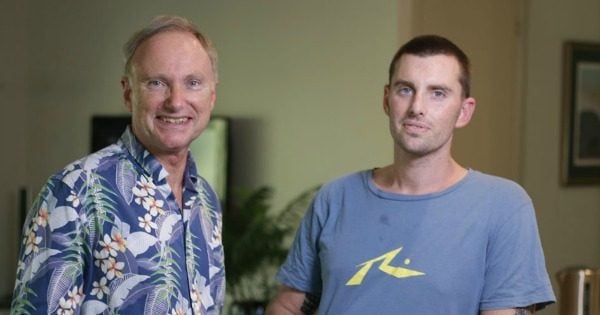How did a world-renowned expert on autism miss the fact that his own son had Asperger’s syndrome?
Professor Tony Attwood still asks himself that question. It was only when his son Will, a drug addict, went to jail for burglary that he watched a video from Will’s childhood and was hit with the realisation.
Professor Attwood says when Will was a child, three decades ago, people weren’t aware of the subtle signs that showed someone had Asperger’s. Will’s behaviour was simply seen as naughty or difficult.
“He could only cope with socialising for only a certain length of time,” Professor Attwood tells Mamamia. “Once that was enough, he needed to escape. This was, say, after 20 minutes of a three-hour family gathering. He learnt when he was very young that if he was disruptive or difficult or embarrassing, we would have to leave, and that was his escape.”
As a child, Will experienced extreme emotions that weren’t helped by his parents consoling or distracting him. He was also sensitive to certain sensory experiences, like a knife buttering toast.
“We thought, ‘Why on earth is he so upset at breakfast time?’ What he wasn’t doing was telling us what circumstances were causing him distress.”
As Will got older, he turned to alcohol and marijuana, to reduce his anxiety and to make him less anxious in social situations. It gave him a culture to join. But it also meant he became disengaged from his family.
“I couldn’t get through to him to know what was happening,” Professor Attwood remembers.





























































































